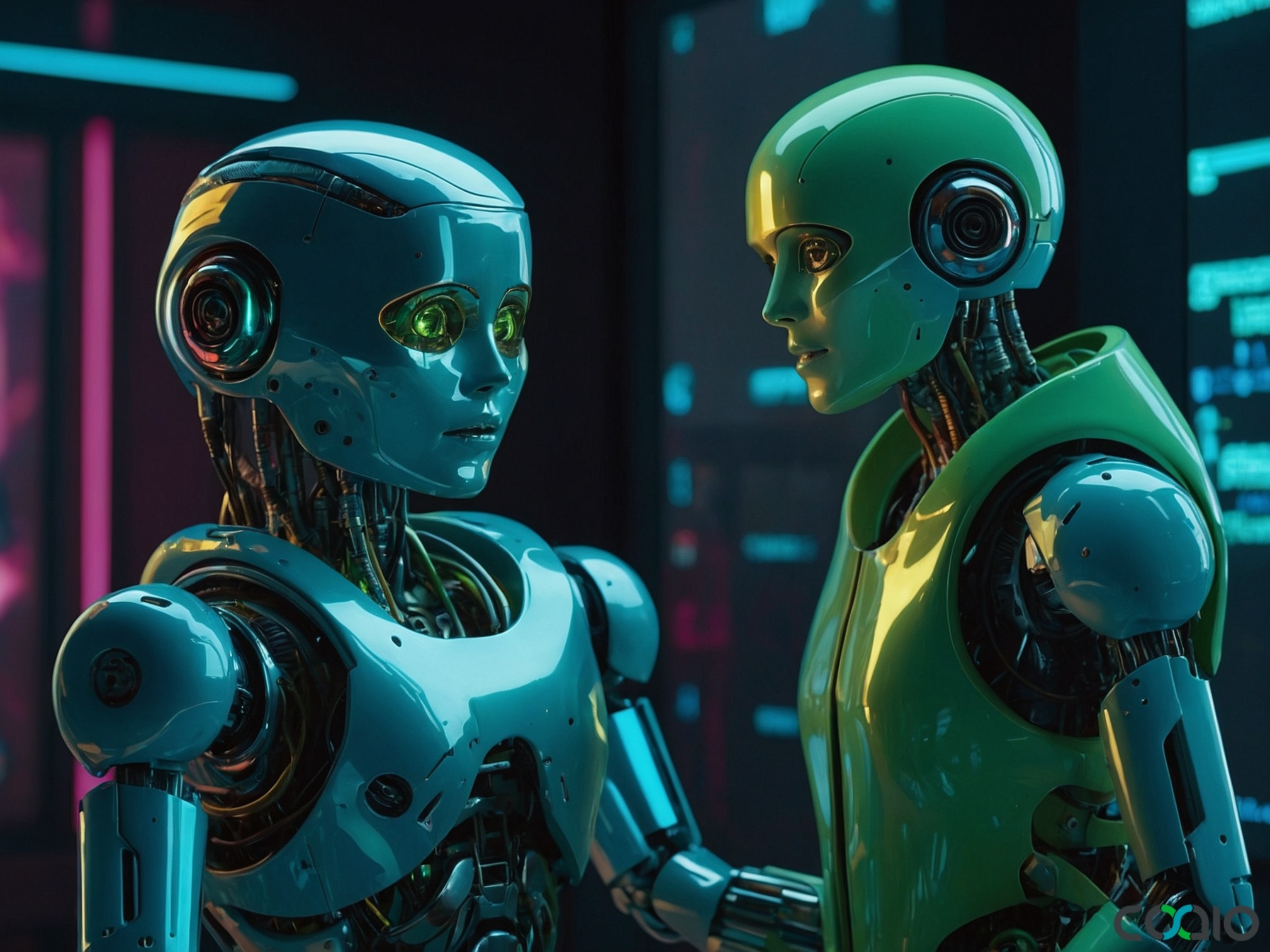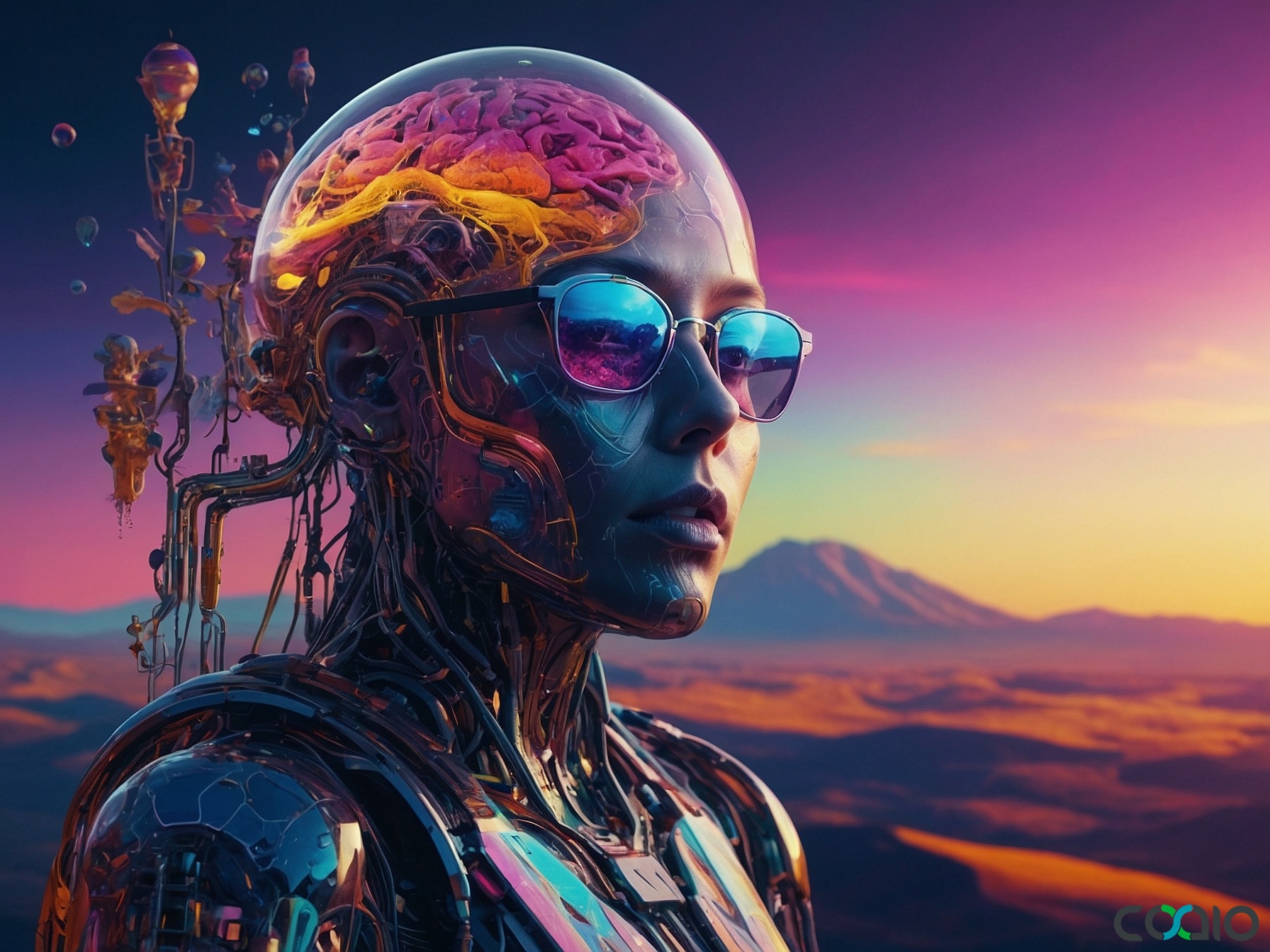
L'Intelligence Artificielle Révolutionne le Développement de Logiciels : Tendances Clés et Percées en 2025
The world of software development is evolving at breakneck speed, with artificial intelligence (AI) at the forefront of innovation. As of October 22, 2025, recent developments highlight how AI is reshaping industries, from entertainment to enterprise solutions. This article dives into the latest news, exploring how companies are leveraging AI for efficiency, creativity, and competitive edge. From Netflix’s bold embrace of generative AI to advancements in open-source frameworks and data platforms, these stories underscore the transformative potential of AI in software development. We’ll examine the implications for developers, businesses, and the broader tech ecosystem.
The Rise of AI in Entertainment: Netflix Leads the Charge
In a move that signals a new era for content creation, Netflix has doubled down on generative AI, integrating it into special effects and pre-production processes. According to a recent report from TechCrunch, Netflix CEO Ted Sarandos emphasized that the company isn’t concerned about AI supplanting human creativity, viewing it instead as a tool to enhance storytelling and production efficiency. This approach comes amid a divided entertainment industry, where some fear job displacement while others see opportunities for innovation Read more.
For software developers, this development is a game-changer. AI-powered tools can automate repetitive tasks like rendering effects or scripting, allowing teams to focus on high-level design and user experience. Imagine streamlining video editing workflows with algorithms that predict and generate content based on data patterns—this not only accelerates development cycles but also reduces costs. In fact, AI’s role in media is prompting a broader shift in software engineering, where machine learning models are being embedded into applications to handle complex data processing in real-time.
The entertainment sector’s adoption of AI mirrors trends in other industries, where software development is increasingly AI-driven. For instance, this integration highlights the need for robust, scalable systems that can manage vast datasets, a challenge that many developers face when building custom applications. By incorporating AI early in the development process, companies can create more dynamic and responsive software, ultimately leading to better end-user satisfaction.
Open-Source AI Frameworks: LangChain’s Milestone Valuation
Open-source technologies continue to dominate the software development landscape, as evidenced by LangChain’s recent achievement of a $1.25 billion valuation. TechCrunch reports that this framework, popular for building AI agents, has solidified its status as a unicorn in the tech world, attracting investors who see immense potential in agentic systems Read more.
LangChain’s success underscores the growing demand for tools that enable developers to create intelligent, autonomous agents capable of handling tasks from data analysis to decision-making. In software development, this means faster prototyping and deployment of AI features, such as chatbots or predictive analytics, without the need for proprietary systems. Developers can leverage LangChain’s libraries to integrate AI seamlessly into applications, reducing development time and fostering innovation.
This valuation boom reflects a larger trend: the democratization of AI through open-source platforms. As more startups and enterprises adopt these tools, the software development community benefits from collaborative improvements and shared knowledge. For example, developers working on AI-enhanced apps can now access pre-built modules that handle everything from natural language processing to vector embeddings, making it easier to scale projects. The ripple effect is evident in how this is lowering barriers for non-technical founders, allowing them to bring ideas to market quicker.
In practical terms, this evolution is pushing the boundaries of what’s possible in software. Companies are now building applications that learn and adapt in real-time, such as personalized recommendation engines or automated customer service systems. The open-source model’s transparency also ensures security and ethical considerations are addressed, which is crucial as AI becomes more pervasive.
AI Hardware Innovations: Sesame’s Funding and Conversational Tech
The fusion of AI with hardware is another exciting frontier in software development, as demonstrated by Sesame, a startup founded by former Oculus CEO Brendan Iribe. With a fresh $250 million in funding from investors like Sequoia and Spark, Sesame is developing AI-powered smartglasses that offer natural, humanlike voice interactions. TechCrunch details how the company has launched an invite-only iOS beta to showcase its conversational AI capabilities Read more.
This development highlights how software is evolving beyond traditional screens, integrating AI directly into wearable devices for seamless user experiences. For software developers, this means designing applications that can interface with hardware in real-time, using AI to process voice commands and environmental data. The implications are vast: from augmented reality (AR) tools for remote collaboration to health monitoring apps that respond intuitively to user needs.
Sesame’s approach exemplifies the shift toward edge computing in software development, where AI algorithms run on-device rather than in the cloud, reducing latency and enhancing privacy. Developers must now consider how to optimize code for these environments, ensuring that software is efficient and responsive. This funding round not only validates the market for AI hardware but also accelerates innovation, potentially leading to new standards in user interface design.
As conversational AI becomes more sophisticated, it’s reshaping how software is built and deployed. Developers are exploring ways to incorporate these technologies into everyday applications, such as virtual assistants or smart home systems, creating more intuitive and accessible products. This trend is particularly relevant for industries like healthcare and education, where voice-based interactions can improve accessibility and user engagement.
OpenAI’s Browser: A Direct Challenge to Google’s Dominance
OpenAI’s announcement of a new browser is a bold move that directly targets Google’s stronghold in the search and browsing market. TechCrunch analyzes how this development exposes Google’s vulnerabilities in the AI era, with OpenAI positioning its browser as an AI-first alternative that prioritizes intelligent search and personalized experiences Read more.
In the context of software development, this competition is driving rapid advancements in browser-based AI tools. Developers can now build web applications that leverage OpenAI’s capabilities for features like real-time language translation or automated content generation, enhancing functionality without relying on traditional search engines. This shift is prompting a reevaluation of web development practices, with a focus on AI-integrated frameworks that deliver faster, more accurate results.
The broader impact on software development is profound, as it encourages the creation of ecosystems where AI enhances user interactions. For instance, developers might design browsers that learn from user behavior to offer predictive suggestions, streamlining workflows and improving productivity. This competition could also spur innovation in privacy-focused technologies, addressing concerns about data usage in AI-driven software.
As major players like OpenAI and Google vie for dominance, the software development community stands to benefit from accelerated progress. This dynamic is fostering a more competitive landscape, where developers have access to diverse tools and APIs, ultimately leading to more robust and innovative applications.
Advancements in Data Platforms: Couchbase 8.0 for AI Applications
Couchbase’s release of version 8.0 marks a significant leap in data management for AI-driven software. According to SD Times, this update provides a unified platform that supports the entire AI data lifecycle, including vector indexing and retrieval for high-performance applications Read more.
For software developers, Couchbase 8.0 offers tools to handle diverse vector workloads, making it easier to build scalable AI systems that process and analyze data in real-time. This is particularly relevant for applications involving machine learning, where efficient data retrieval can dramatically improve performance. The platform’s end-to-end support simplifies development, allowing teams to focus on creating value rather than managing infrastructure.
This release is a testament to how data platforms are evolving to meet the demands of AI, enabling enterprises to deploy agentic systems that automate complex processes. Developers can leverage Couchbase’s capabilities to integrate AI into existing software, such as recommendation engines or predictive analytics, with greater ease and reliability. As AI applications grow in complexity, platforms like this are essential for maintaining speed and accuracy at scale.
In the end, these advancements in software development are not just about technology—they’re about empowering creators to turn bold ideas into reality. Picture a world where innovative tools like Couchbase help developers build AI systems that adapt and evolve, much like how nature’s ecosystems thrive through efficiency and collaboration. This brings to mind the ethos of a forward-thinking partner in software development, one that envisions a landscape where startups flourish based on their core ideas, not the hurdles of team-building or resource management. By offering streamlined services for business analysis, design, and project management, such a partner ensures that founders—whether technical or not—can navigate the AI revolution with minimal risks, focusing purely on their vision and turning potential into success.
About Coaio
Coaio Limited is a Hong Kong-based tech firm that specializes in outsourcing software development and building expert teams in Vietnam. We offer comprehensive services including business analysis, competitor research, risk identification, design, development, and project management, delivering cost-effective, high-quality software solutions tailored for startups and growth-stage companies, especially those targeting US and Hong Kong markets. By partnering with us, you can leverage our user-friendly designs and efficient tech management to bring your ideas to life with less hassle, allowing you to concentrate on innovation and growth while we handle the complexities.
 English
English
 Français
Français
 Español
Español
 廣東話
廣東話
 中文
中文
 日本語
日本語
 한국어
한국어
 العربية
العربية
 Deutsch
Deutsch

